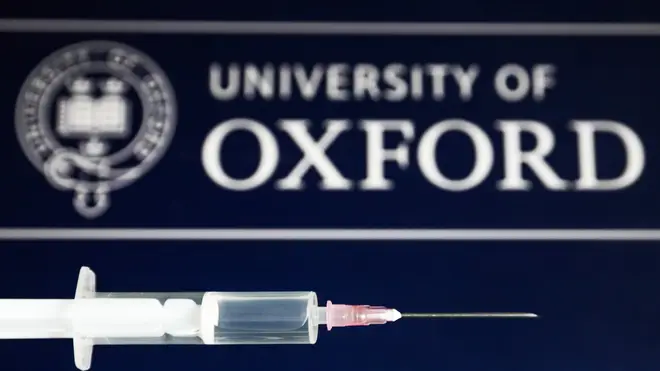
Richard Spurr 1am - 4am
28 May 2021, 18:46

The University of Oxford has launched a special research centre to help prepare the world for future pandemic threats.
The Pandemic Sciences Centre will aim to provide science-driven solutions to complex problems, responding to potential outbreaks as soon as possible.
It will build on the strong rapport developed globally between academia, industry and public health bodies during the Coronavirus pandemic.
Within Oxford, academics and experts across the research community - including those from infectious diseases, vaccinology, immunology, and clinical trials - will be coming together.
The inaugural director of the centre is Peter Horby, professor of emerging infectious diseases at Oxford, who previously worked on global health threats such as SARS-1 and Ebola.
Read more: Johnson & Johnson single dose Covid-19 vaccine authorised for UK use
Read more: Covid-19 vaccines have 'prevented 40,000 hospitalisations in England so far'
The new Pandemic Sciences Centre will focus on three core themes:
— University of Oxford (@UniofOxford) May 28, 2021
1. Accelerating understanding and insights:
2. Translating research into real-world solutions
3. Enhancing confidence, trust and impact
More info ⬇️
Sir John Bell, regius professor of medicine at Oxford University, said: "It would be easy to ignore just how much more serious a pandemic could have been this time around - other highly pathogenic viruses carry mortalities of 35-50% - imagine if we had a pandemic where one in three infected people died.
"The University of Oxford is uniquely capable of leading a global step change in how we respond to the threat of emerging infections."
He added: "By investing in sound science now, we can help to safeguard our resilience, global economic stability and health security for generations to come.
"We are ready to take our vision to build on these foundations to ensure society is better prepared and agile in its response to future threats."
Read more: European regulator approves Pfizer vaccine for children aged 12-15
Read more: Huge crowd descends on London's Chinatown for Covid jabs on 'vaccine bus'

David Davis: UK was 'nothing like the best-prepared country in the world' for a pandemic
The university's vice-chancellor, Louise Richardson, explained how the new centre can help prepare the world for what is to come.
"The recent pandemic has demonstrated the unique contributions research universities like Oxford can make to pandemic preparedness," she said.
"We are building on decades of medical research on infectious disease and data science, we have long-standing international partnerships and we have the ability to act and to adapt quickly.
"When aligned with industry and with public health bodies we can ensure that the world is never caught unprepared again."